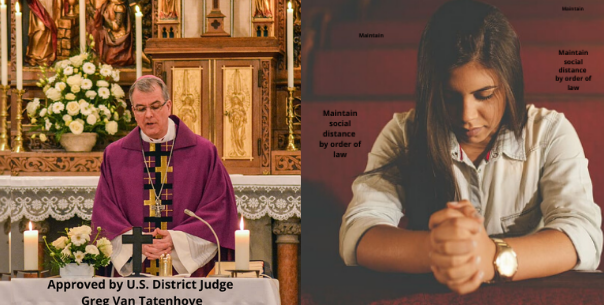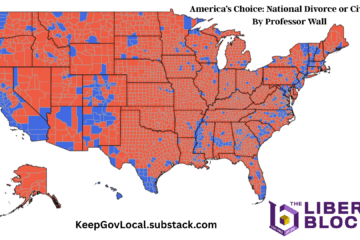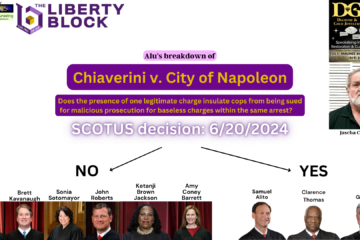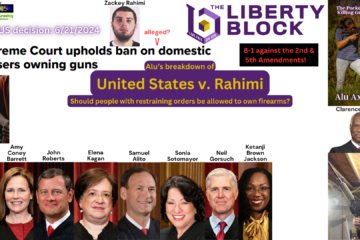On Friday, May 8th, The Louisville Courier-Journal reported that a federal judge overturned a previous ruling banning in-person worship in Kentucky. The judge ruled that Governor Beshear cannot prohibit the act of attending church while still allowing people to gather in supermarkets, work meetings, and the governor’s press meetings. Many conservatives and libertarians see this ruling as a win for freedom of religion. Here’s why I think that this ruling is terrible for the cause of liberty.
Especially during these trying times, we often hear from self-proclaimed conservatives and Constitutional scholars that “…we have constitutional rights, damnit! And no politician can take those rights away!” In my more naive days, I, too, made such statements. But aren’t these statements inherently self-contradictory?. On one hand, conservatives believe and profess that rights cannot be taken away by any man (politician, lawyer, judge, voter, etc.). On the other hand, conservatives believe that once a vote occurs or a ruling is made, it becomes law – and “you gotta follow the law, no matter what!”, as we are often reminded by ‘constitutional conservatives’.
In this specific case, Kentucky’s new leftist governor made it a crime to attend church services. He even instructed his armed enforcers to punish people for attending ‘drive-in’ services and praying in their vehicles, for some unknown reason.
“Two other federal judges in Kentucky — David Hale of Louisville and William Bertelsman of Covington — had previously ruled that the ban on in-person church services was constitutional”, the Journal reported. On Friday, another federal judge ruled that the ban on praying in church was unconstitutional and cannot be enforced. Thanks to this judge, Kentuckians are now free to exercise their religion once more. Should they be grateful to this government official for ‘giving’ them the right to pray? Should they worry about whether the next judge to rule on this case decides that Beshear’s law is constitutional? How could they possibly pray in peace in such a circumstance?

This is what we should expect to occur when we leave our natural (not constitutional – but natural) rights to be interpreted and controlled by megalomaniacal judges and politicians. What would God say if you told him that you will not worship him properly because a politician or a judge ‘ruled’ that it’s illegal to do so? Do you serve God or do you serve the government? Do you remember God’s first commandment? I’ll give you a hint: It does not allow you to worship your government over your God.
We have seen a very similar phenomenon occur with the 2nd amendment. Each politician and judge ‘interprets’ the natural right their own way, and all 330,000,000 individuals in the US must give up their firearms and accessories or change their habits with each new court decision or ATF ruling. As with so many other issues, every June we wait with bated breath to find out what our Constitution says. If our right to bear arms is natural and inalienable, let’s make that known to our elected officials and judges. If the right to exercise our religion is natural and inalienable, let’s stop waiting for judges and politicians to ‘allow’ us to pray. Many of us believe that the 1st amendment is already severely limited and that freedom of speech, press, and religion no longer exist in the US except when explicitly granted to an individual by a government official.
As long as we cheer such court rulings as ‘great wins’ for liberty and conservatism, we will forever remain in the subservient position to the organized criminals who call themselves ‘government’. Politicians, lawyers, judges, and voters cannot ‘give’ us any rights, because our rights belong to each of us as individuals. Your right to free speech, religion, property, and self-defense are yours and only yours. Nobody can give them to you, nor can they rightfully take them from you. If a judge ruled that you were allowed to breathe, you would not thank him. You would condemn him for having the audacity to believe that such a right was his to give. Why should other natural rights be any different?


